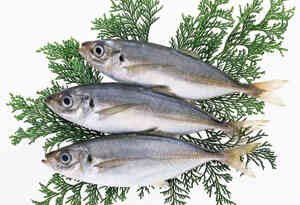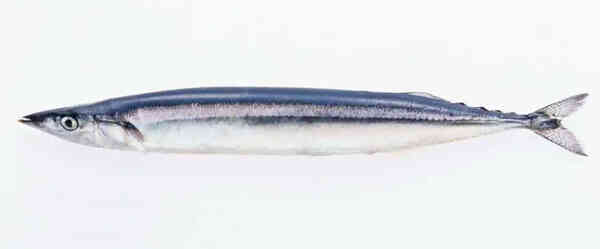
Alias Coilia nasus,Bitter fish, anchovies, hair fish, razorfish, hairy fish
Family Herpetiformes Anchovy Coilia
Knife fish, scientifically known as long-jawed anchovy, also known as knife anchovy and hairy anchovy, is a migratory fish. Knife fish usually live in the sea. They enter the river from the sea in February and March every year and migrate upstream for reproduction. Every spring, knife fish swim upstream in groups, forming a fish season. They are not big in size, but there are many of them, and the yield is very high. They are common economic fish along the coast.

There is a folk proverb that "Knife fish comes out of the spring tide fog", which is the earliest fresh fish in spring. As one of the "three fresh fishes of the Yangtze River", knife fish has extremely high nutritional value. Every 100 grams of knife fish contains 18.4 grams of protein and 4.6 grams of fat. It also contains phosphorus, iron, calcium, zinc, magnesium, vitamins A, B1, B2 and other nutrients.
Knife fish is a carnivorous fish. Juveniles and young fish usually live in the upper and middle layers, mainly feeding on small crustaceans and their larvae such as copepods and cladocerans; adult fish live in deeper water layers, mainly feeding on large crustaceans such as shrimps and other large animals such as polychaetes, silverfish, plum fish, yellow croaker, pomfret, squid and other larvae or adults. It also feeds on mollusks. In addition, it also feeds on grass roots, seed coats, soil and so on.
Historically, the Yangtze River knife fish resources were extremely abundant, but due to overfishing and changes in the ecological environment of the waters, its resources have been threatened. According to records, the production of knife fish along the Yangtze River in 1973 was 3750t. In 1983, it was about 370t, and in 2002, the production was less than 100t. In 2005, the production was only 50t. In the 1970s, the 3-4-year-old individuals in the Yangtze River knife fish population did not exceed 80%, with an average body weight of 117.7g and an average body length of 314.5mm. In recent years, the 1-2-year-old individuals are the main ones, with an average body weight of 50-100g and an average body length of less than 200mm. From 1973 to 1975, the average sexual maturity age of Yangtze River knife fish was 2-3 years old. In recent years, its average sexual maturity age has been significantly advanced, mostly 1-2 years old. The fat content in the muscle of early Yangtze River knife fish was 15.8%-30.0%, protein 14.0%, and phosphorus 1.1%. In recent years, the deliciousness of its meat has declined significantly, and the residual toxin content in its body has increased significantly.
The fat content of knife fish is higher than that of general fish, and most of it is unsaturated fatty acids. This fatty acid has a longer carbon chain and has the effect of lowering cholesterol. It is an ideal nourishing food for the elderly, children, and pregnant women. The scales and silvery-white oil layer of knife fish also contain an anti-cancer ingredient 6-thioguanine, which is beneficial for the auxiliary treatment of leukemia, gastric cancer, lymphoma, etc.; knife fish is rich in magnesium, which has a good protective effect on the cardiovascular system and is conducive to preventing cardiovascular diseases such as hypertension and myocardial infarction.
Knife fish is delicious and tender, so it is famous far and wide. It is called "Three Fresh Foods of the Yangtze River" together with Yangtze River Shad and Pufferfish. People with sores and scabies should eat less.
Ancient Chinese medicine believes that knife fish has the functions of nourishing the liver, dispelling wind, and stopping bleeding. It is effective in treating bleeding, sores, carbuncles and other diseases; knife fish scales are the raw materials for making antipyretic and analgesic tablets and anti-tumor drugs. The scales contain a variety of unsaturated fatty acids, which have the effect of lowering cholesterol. Knife fish is suitable for people with long-term illness, dizziness due to blood deficiency, shortness of breath and fatigue, thinness and malnutrition. It can not only soothe the stomach and stimulate appetite, but also moisturize the skin and beautify the skin.